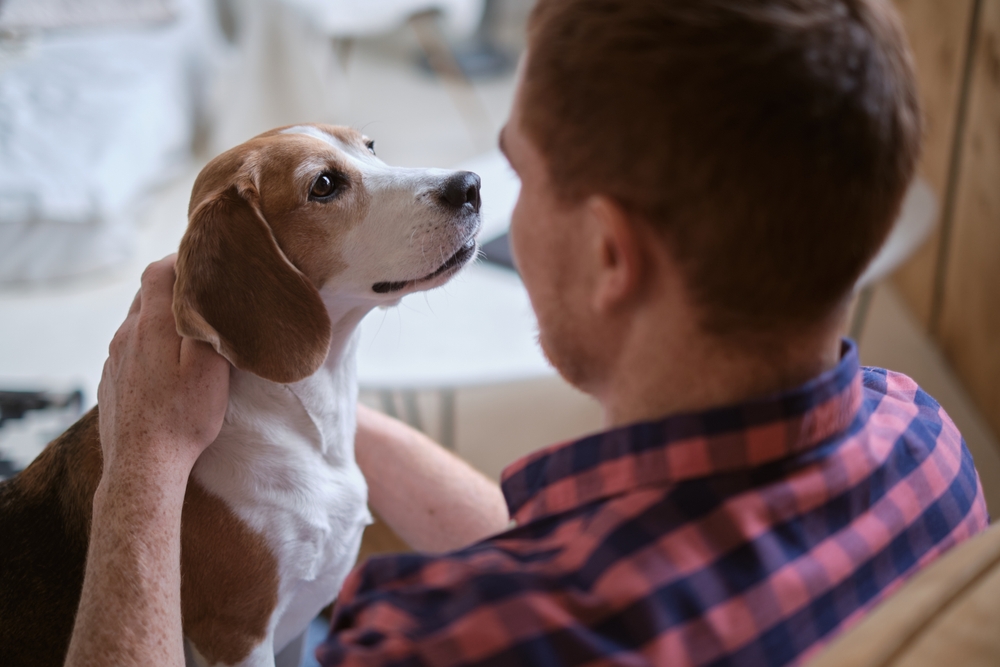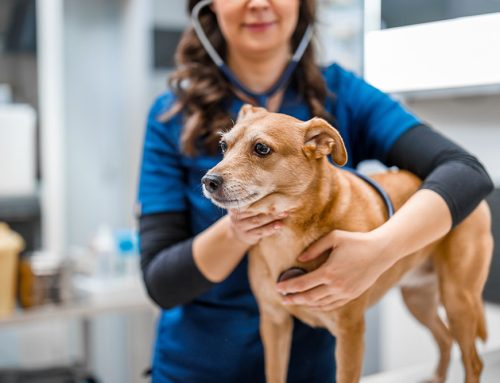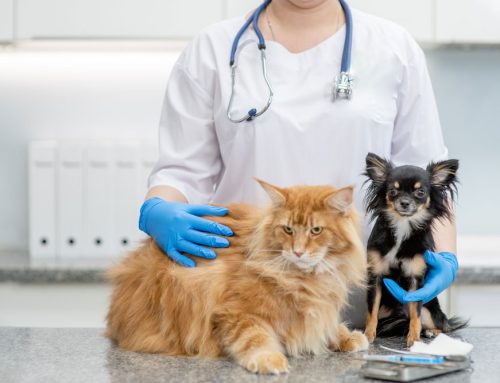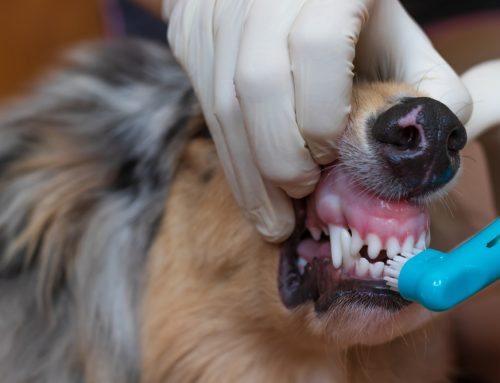Understanding Pet Anxiety: Signs, Triggers, and Calming Solutions
At Southern Crossing Animal Hospital, we often hear from pet owners who say something just feels “off” with their pet. Maybe your dog used to love car rides but now trembles at the sight of the leash, or your cat has suddenly decided that under the bed is their full-time residence. If this sounds familiar, your pet may be experiencing anxiety – and you’re not alone in trying to figure it out. Stress and anxiety can affect pets just like they do people.
While a little stress is normal (yes, even pets have “Mondays”), chronic anxiety can take a real toll on their health and behavior. The good news? With the right tools and care, you can help your pet feel more secure and relaxed.
What Stress and Anxiety Look Like in Pets
Stress is often a short-term reaction to a specific event, like a loud noise or an unfamiliar visitor. Anxiety tends to be more persistent – a lingering sense of unease that doesn’t go away when the trigger disappears. Both can seriously affect your pet’s well-being if left unaddressed.
What Causes Pet Anxiety?
Every pet is different, but there are a few common culprits:
- Environmental Changes: Moving, remodeling, or even new furniture can cause stress.
- Noise Sensitivity: Thunderstorms, fireworks, or loud traffic are frequent triggers. More on noise-related anxiety.
- Separation Anxiety: Some pets struggle when left alone. This ASPCA guide offers helpful info.
- Medical Conditions: Pain, illness, or hormonal imbalances can lead to behavioral changes. Read more on pain management here.
- Past Trauma: Pets with a history of neglect or abuse often develop anxiety.
- Social Conflicts: Tension with other pets in the household can be a major stressor.
- Lack of Socialization: Pets who weren’t exposed to people or other animals early in life may have difficulty adapting to new environments. Learn more about socialization.
Why It’s Important to Act Early
When anxiety goes unchecked, it doesn’t just impact your pet’s mood – it can affect their overall health and your bond with them. Chronic stress weakens the immune system, alters sleep and eating patterns, and can make even minor behavioral issues feel overwhelming. Behavioral symptoms may escalate, physical health can suffer, and pets may become increasingly reactive or withdrawn. Catching these signs early makes treatment easier and more effective.
Signs of Anxiety in Dogs
Dogs tend to wear their emotions on their sleeves – or paws. Here are some telltale signs of stress:
- Obvious Behaviors: Barking, whining, pacing, destruction, or hiding.
- Physical Clues: Panting when it’s not hot, drooling, trembling, or GI upset.
- Subtle Signals: Lip licking, yawning when not tired, avoiding eye contact, or a tucked tail.
Signs of Anxiety in Cats
Cats are more subtle, but the signs are just as important:
- Behavioral Changes: Hiding, aggression, excessive grooming, or litter box avoidance.
- Physical Changes: Panting (unusual and concerning in cats), trembling, or reduced appetite.
- Body Language: Ears back, stiff posture, twitching tail or skin. For more insights, visit the ASPCA’s page on cat behavior.
What Happens If It Goes Untreated?
When anxiety isn’t addressed, pets can develop more serious issues like phobias or compulsive behaviors (excessive licking, self-harm). It can also amplify existing health problems and increase sensitivity to everyday situations. The longer it goes unaddressed, the harder it becomes to reverse.
How We Diagnose Anxiety at Southern Crossing Animal Hospital
We take a thorough and compassionate approach. Here’s what you can expect during a consultation:
- Behavioral History: We’ll ask about routines, recent changes, and specific behaviors.
- Physical Exam: To rule out underlying medical issues. We offer Fear-Free exams to help anxious pets.
- Diagnostics: Bloodwork, urinalysis, or imaging may be recommended if symptoms suggest a medical cause.
- Observation: We may observe your pet in the clinic or recommend at-home video recording.
Treatment: Combining Tools for Success
Anxiety is treatable, and most pets respond well to a combination of approaches. Here’s how we typically build a care plan:
- Behavioral Modification: Techniques like desensitization and counter-conditioning help change your pet’s response to stress.
- Environmental Enrichment: Keep your pet mentally and physically engaged. Here are some dog enrichment ideas. Try also try these cat-specific DIY enrichment toys. Rotate toys to keep things interesting. Use puzzle feeders to make mealtimes mentally stimulating.
- Pheromone Products: Calming sprays and diffusers can help create a soothing environment. Feliway and Adaptil are two common options for dogs and cats.
- Nutritional Support: Some diets and supplements are formulated to support calm behavior.
- Medication: For moderate to severe cases, anti-anxiety medications may be used temporarily or long-term, depending on your pet’s needs.
Another important factor is predictability and calmness in their environment. Here are some ideas that make a difference.
- Designate a Safe Space: A quiet room or crate with comfortable bedding.
- Stick to Routines: Feed, walk, and play at consistent times.
- Use White Noise or Soft Music: Helpful during storms or when you’re away.
- Minimize Stressful Triggers: If possible, reduce exposure to known stressors.

Preparing for Your Vet Visit
If you suspect anxiety, bring the following to your appointment:
- A list of specific behaviors and when they occur
- A log of any recent changes in environment or routine
- Videos of the behavior if possible
- A list of current medications and supplements This information helps us tailor a plan that’s right for your pet.
Frequently Asked Questions
Q: Will medication change my pet’s personality?
A: No. The goal of medication is to reduce anxiety, not to sedate or alter your pet’s core personality.
Q: Is this just a phase?
A: Some behaviors resolve on their own, but persistent anxiety usually requires intervention.
Q: How long does treatment take to work?
A: It depends on the severity and approach, but many owners see improvement in a few weeks.
Q: Can my stress affect my pet?
A: Absolutely. Pets often mirror their owner’s emotional state, especially dogs.
We’re Here to Support You
At Southern Crossing Animal Hospital, we’re committed to helping you understand and manage your pet’s emotional health with confidence. You know your pet best, and when something seems off, it’s worth exploring. Let’s work together to help them feel more secure and settled – because a calm pet is a happy pet. Schedule an appointment or reach out with questions anytime. We’re here to help you both find your footing.








Leave A Comment